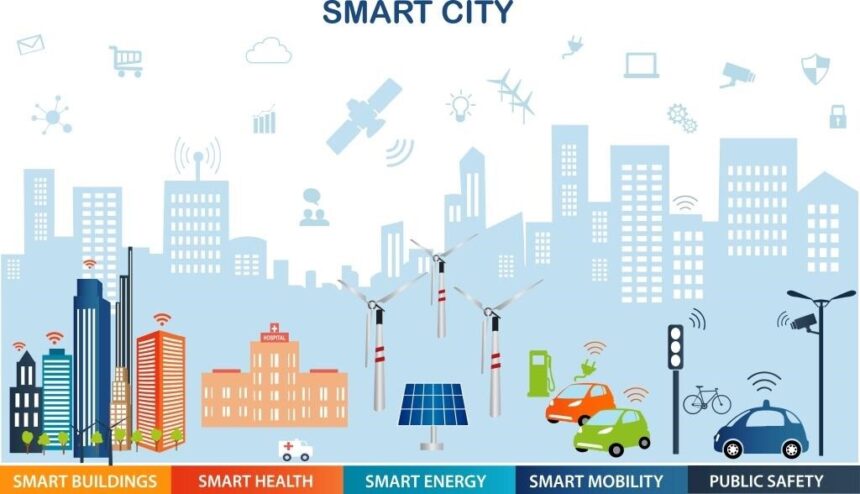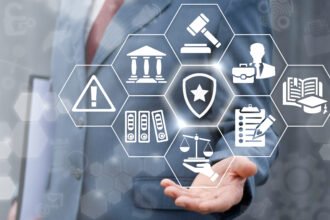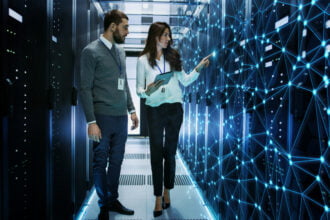Smart cities are the future of our urban centers, and even of suburbs and small towns – and this transformation is critical. Equipped with sensors and constantly collecting data, this tech revolution aims to make crowded cities more efficient, keep residents safer, and even help protect our environment through resource management. Making this shift, however, will require big investments on the part of both government bodies and businesses. This is particularly true when it comes to reducing energy waste.
Compared to improving traffic flow by placing cameras on every corner and analyzing the patterns or improving payment systems, the infrastructural improvements necessary to reduce energy waste demands a complex combination of data, new systems and retrofitting, and individual change. Our cities need to change, but so do their residents. The good news is that there’s a lot of motivation pushing people to participate in this change.
College Campuses – The Microcosm
In order to understand what smart cities will look like in the future, it may be helpful to look at the modern college campus. Self-contained worlds, universities are taking the initiative to change how they operate, and they’re looking more and more like tiny smart cities. The University of Texas at Austin has its own independent grid and provides all of its own energy, University of Michigan has a self-driving shuttle, and Emory University has a first of its kind in the US grey water recycling system.
Because their set of stakeholders is smaller and they already have a variety of campus-specific systems like payment cards, college campuses are well-positioned to experiment with smart city infrastructure. They also already have master controls for heating and cooling and a variety of other central operating procedures. Finally, today’s college students are part of a generation that’s deeply invested in environmental issues and they are more likely to make the types of behavioral changes that mesh well with reduced energy consumption.
The Environment And Infrastructure
Compared to colleges, making the necessary infrastructural changes that would make a city more sustainable is obviously much more challenging, especially because they’re faced with the challenges of privately-owned buildings. Consider, for example, what types of changes cities would have to be to make their heating and cooling most sustainable. As reported by Smart City Press, a full 39% of carbon emissions come from commercial and residential buildings and 33% comes from transportation. Cutting those numbers is a big ask.
A key part of reducing energy consumption and carbon emissions in cities is modifying heating and cooling systems, including in private homes. Swapping out traditional fireplaces and replacing them with modern electric fireplaces can help cut emissions and will work even more efficiently if they’re paired with a sustainable energy system, like solar or wind energy. The challenge is that, while cities can provide the alternative energy source, it’s hard to enforce improved home heating and cooling systems. What cities can do, though, is require new construction and improvements to meet certain energy standards. Cities can also closely monitor energy use data via their grid system to highlight homes with a high degree of waste and offer remediation assistance.
Emphasizing Analytics
As noted above, big data will play a key role in the evolution and effectiveness of smart cities, and this too will come with high infrastructural costs. Luckily, there are private companies investing in these improvements. Google’s parent company Alphabet, for example, has an infrastructure company known as Sidewalk Infrastructure Partners (SIP). SIP has committed to investing in large-scale energy infrastructure improvements as part of overall smart city development – and they’re thinking vertically. Vertical improvements ensure that any data collected has the greatest possible impact because it isn’t siloed off from the broader system.
In addition to the general financial burden represented by infrastructural improvements, we need to be aware of how much energy data collection and storage consumes. It’s also expensive to construct. Smart cities will have to come up with green energy solutions for data storage – otherwise, the push to transition to smart cities and to collect the sort of data necessary for their operation could be a step backwards in terms of emissions.
Trust, Security, And Moving Forward
While transitioning to more sustainable energy systems and building the necessary data infrastructure to monitor and reduce consumption will present a serious challenge to cities – and will be even harder for suburbs and small towns – perhaps the biggest barrier of all will be establishing the trust needed to make these systems work. Many people are hesitant to embrace data-driven smart cities because they’re concerned about the degree of surveillance involved in these systems. More importantly, they’re not wrong to be concerned. Systems aren’t always secure and breaches happen. In other words, cities will need to invest both in energy infrastructure and security research and systems if they’re going to make progress towards sustainability more broadly.
Elements of the smart city are cropping up everywhere, but we’re a long way from the completely responsive environment that developers envision. In order to keep our current environmental crisis from worsening, cities need to act quickly to implement emissions and energy waste reduction efforts. We’re already behind the eight ball, and we only have a few years left to reverse our harmful habits at a systemic level.









